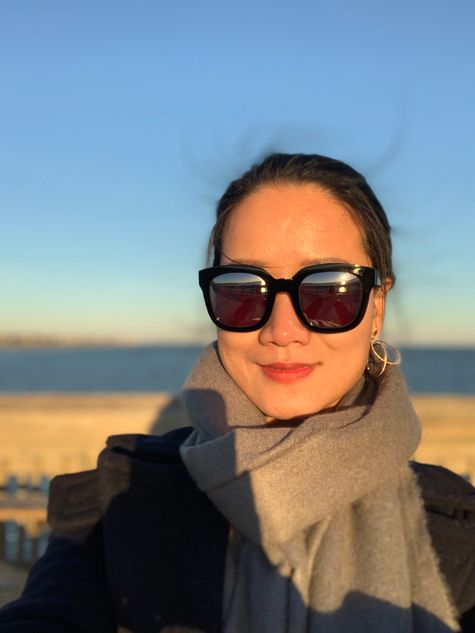Early Career Scientist Spotlight
Dr. Mijin Kim
Atmospheric Scientist
Climate and Radiation Laboratory
What is your research focus?
My research is focused on how aerosols are distributed and transported around the world. As aerosols have widespread climate and health effects, it is an important topic not only in the scientific community but also for society. Satellite observations having wide coverage is advantageous for investigating the global distribution of aerosols. So, I am observing aerosols via satellite remote sensing. The main challenge in satellite-based aerosol retrieval is to separate surface signal from the measured signal, as the surface makes a greater contribution to the measured signal than the atmosphere. In this regard, I am focusing on estimating surface reflectance in order to improve the properties of aerosol retrieval.
Did you always know that you wanted to be an atmospheric scientist?
I did not initially intend to be a scientist, but I found it was the most efficient way to enjoy my favorite hobby as a career. When I was a teenager, my favorite pastime was watching the movement of clouds in the sky. Ahead of going to college, as an introverted girl, I chose to study "Atmospheric Sciences" because of the very emotional reasons I loved the sky. The study was not as romantic as I expected, but it was still interesting and attractive. I was fascinated by atmospheric remote sensing. It allowed me to watch dynamic change of the global atmosphere in front of my desk.
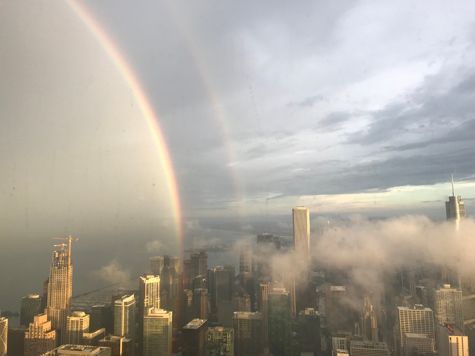
Credit: Mijin Kim
What is one research project that you are particularly excited about, and why?
South Korea has launched three geostationary orbit satellites to observe meteorological phenomena, ocean, end atmospheric environment. Fortunately, I had participated in research projects to develop aerosol retrieval algorithm for each of these satellites. The most impressive one is the Geostationary Environment Monitoring Spectrometer (GEMS) because it is the world’s first environment monitoring satellite onboard geostationary orbit satellite. I have been involved since the very beginning of the GEMS project and I had the opportunity to experience the sensor design process and planning for application, as well as algorithm development. It was a valuable experience, like watching the process of a life being born.
What is one of your favorite moments in your career so far?
Big or small, every moment of achievement is memorable. One of my favorite moments is the handshake I had with my Ph.D. advisor when I completed my degree. It made me feel the sense of accomplishment that I finally fulfilled the biggest mission in my life. That moment was the end of my Ph.D. student life and the beginning of a researcher's life. I often remember that delightful moment to remind me of when I first began.
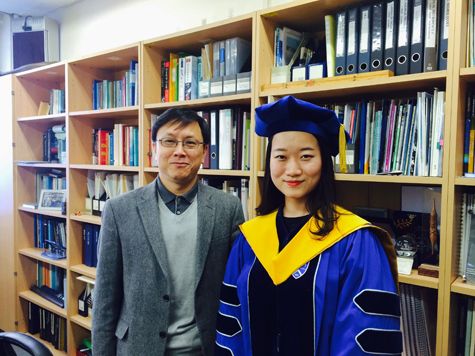
Credit: Mijin Kim
How did you end up working at NASA Goddard?
I thought NASA was like an unrealistic place that can only be seen in movies or papers. It became realistic through visiting and collaboration during my Ph.D. When my husband obtained a postdoc position at NASA Goddard ahead of me, we moved from Korea to Maryland together, and finally NASA Goddard became a neighbor. I learned that the Dark Target aerosol team was looking for a postdoc. It was an opportunity not to be missed. So, I contacted my current advisor and applied to the NASA Postdoctoral Program, and was accepted!
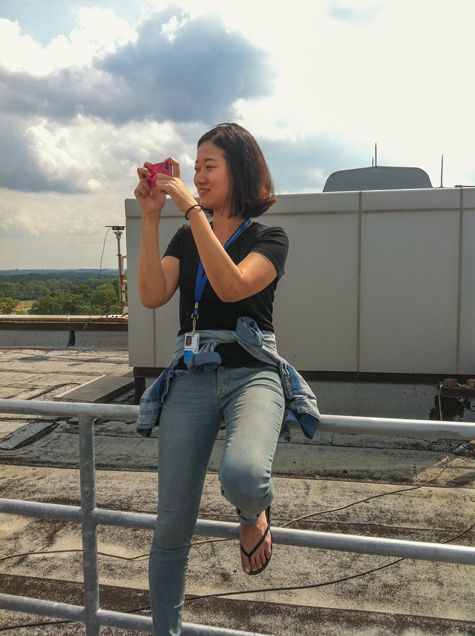
Credit: Mijin Kim
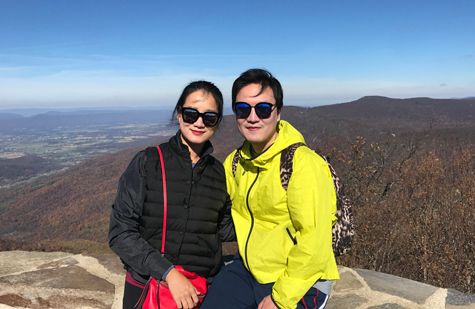
Credit: Mijin Kim
What do you like to do in your free time?
I enjoy cooking and baking. It's good to be able to see the outcome immediately, which changes according to my intentions and methodology. Feeling the texture of the flour or chopping the vegetables greatly help to relieve stress.
What are your future research interests and goals?
In my hometown, air quality is of great public concern in terms of health and industry. Therefore, interest in satellite observation is also high. The aerosol and air quality information obtained from satellites can be used in various ways in real life. In this regard, I would like to link scientific research and public service, so my research products can be utilized practically in the public society.
Biography
Home Town:
Seoul, South Korea
Undergraduate Degree:
Bachelor of Science, Yonsei University, Seoul, South Korea
Post-graduate Degree:
Ph.D, Aerosol Remote Sensing, Yonsei University, Seoul, South Korea
